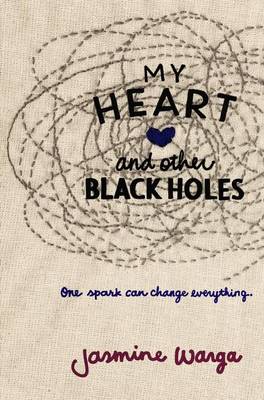Reviewed by justine_manzano on
And yet.
This book was gorgeous. So many beautiful lines on such a painful subject. So much hope hidden in the pages. The author's use of principles of physics to highlight the potential energy in living and the relativity in how we each see our lives was just so beautiful, and ended up being discussed with my son who may be too young to read this book without turning it into a reason to be more depressed, is actually intelligent enough to understand these two principles of physics. I loved the inherent hope in these universal principles.
While other readers thought the romance between the two main characters was trite and obvious in a YA book, I found it refreshing. The best part about it being that it's not what saved them. What saved them was finally talking to each other about what they were going to. It was opening themselves up. Aysel and, we find, Roman, was not speaking to anyone about her internal life. When she opened herself up to Roman, she slowly began unburdening herself. It happens slowly, so slowly you may miss it (and many readers seem to have missed it) but you can see Aysel freeing herself the minute she starts speaking to people more, acknowledging this feeling inside of her, embracing her potential energy. And Roman is doing the same, even though we don't see it outwardly, we can see it in the way he keeps trying to convince himself that nothing can change, in the way he holds Aysel tighter, in the way he tries to do it on his own before Aysel can stop him. He's made himself this mission, and he feels it slipping and he's grabbing on even harder because he's afraid to let it go. In the end, when they both decide not to, it feels real. And it doesn't feel like a solution, like an ending.
It feels like potential energy.
Reading updates
- Started reading
- Finished reading
- 26 March, 2015: Reviewed
